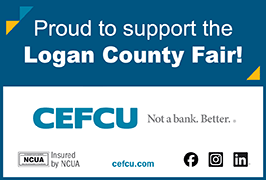Alternative tax-hike ideas emerge to fund Illinois public transit
[September 02, 2025]
By Jim Talamonti | The Center Square
(The Center Square) – Illinois lawmakers are proposing more options to
address a $770 million fiscal cliff for public transit.
After a funding package that included a $1.50 retail delivery tax and
real-estate transfer taxes failed to clear the Illinois House during the
2025 spring legislative session, state Rep. Kam Buckner, D-Chicago,
suggested a special-event surcharge that could raise interest in the use
of mass transit.
State Sen. Don DeWitte, R-St. Charles, told The Center Square that
Senate Republicans are getting ready to propose their own new
legislation.
DeWitte said labor agreed to allow interest from Illinois road-fund
dollars to be used for the transit fiscal cliff. He said Gov. J.B.
Pritzker should do the same with the approximately $3 billion rainy day
fund.
The St. Charles Republican said the state reported that the rainy day
fund generated close to $600 million in interest since its inception.
DeWitte also pointed to a Chicago Metropolitan Planning Agency report
that showed Illinois with the smallest percentage of state contribution
to mass transit in the nation.

“They took the six largest mass transit systems in the country, compared
state contributions. Illinois was dead last. The administration needs to
recognize that mass transportation has got to be a priority in this
state,” DeWitte said.
DeWitte said Republicans would also propose a rideshare tax as an
alternative to the so-called “pizza tax” for Chicago transit.
“While nobody likes tax increases and there’s got to be some level of
sustainable revenues, we believe it’s a much fairer model to use Uber/Lyft
on a statewide basis to fund the downstate transit regions, keeping that
local tax money being generated where it’s being collected from. We
think that’s a much fairer approach,” DeWitte said.
DeWitte said Senate Republicans hoped to have the legislation put
together before the fall veto session in October.
[to top of second column]
|

State Sen. Ram Villivalam, D-Chicago, told The Center Square last
month that any funding plan would have to invest $1.5 billion and
keep at least $200 million for downstate transit.
University of Chicago Professor Justin Marlowe said some people
might think a real-estate tax for transit would make sense because
both real estate and transit are place-based.
“At the same time, as ways to finance a transit system go, it’s no
more place-based than a lot of our others ways of paying for a
transit system. It’s technically no more place-based than a sales
tax. It’s no more place-based than a traditional property tax, so I
think critics say that there’s nothing unique about the real estate
transfer tax. The connection between it and transit is no different
than most of our other taxes, and for that reason it’s not
necessarily a good candidate to try to address the transit funding
gap,” Marlowe told The Center Square.
Marlowe said a real estate tax would be more volatile than other
funding options.
“The housing market is prone to cycles and swings and ebbs and
flows, just like any other type of market or any other type of what
we might call ‘a wealth tax,' something that’s taxing behavior of a
certain kind of investment in the marketplace. It’s not as
predictable as some would like,” Marlowe said.
Marlowe said the empirical evidence is unclear about the effects of
real estate taxes on people leaving the state or on the demand for
properties, but he said the taxes could discourage people from
investing in homes.
DeWitte said a transit working group of Illinois House Democrats
shared some alternative revenue scenarios. DeWitte said the measures
sounded more moderate, but he said he expected there to be
surcharges or tax increases included in the bill from the majority
party.
 |